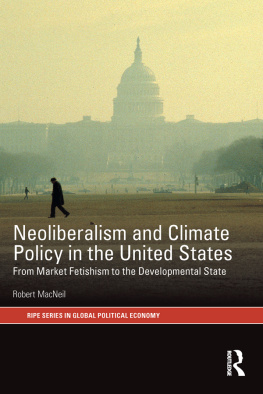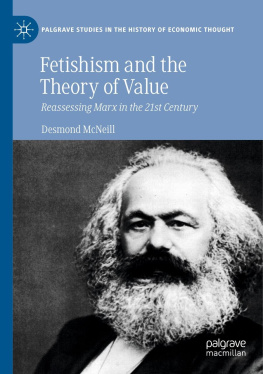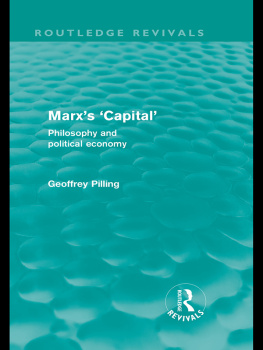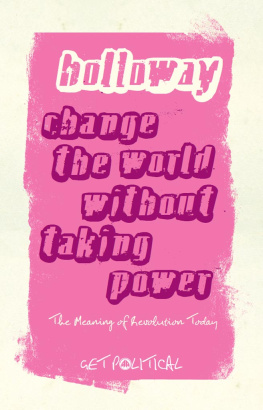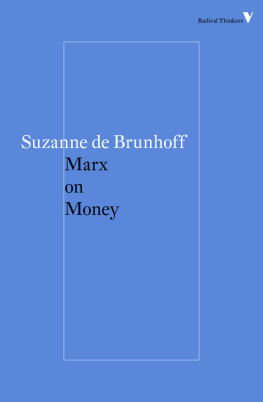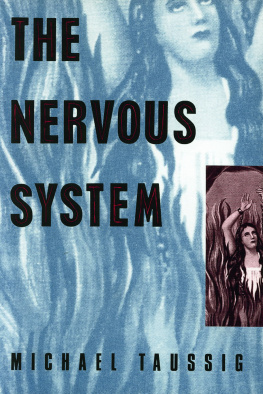Michael T. Taussig - The Devil and Commodity Fetishism in South America
Here you can read online Michael T. Taussig - The Devil and Commodity Fetishism in South America full text of the book (entire story) in english for free. Download pdf and epub, get meaning, cover and reviews about this ebook. City: Chapel Hill, year: 2010, publisher: University of North Carolina Press, genre: Science. Description of the work, (preface) as well as reviews are available. Best literature library LitArk.com created for fans of good reading and offers a wide selection of genres:
Romance novel
Science fiction
Adventure
Detective
Science
History
Home and family
Prose
Art
Politics
Computer
Non-fiction
Religion
Business
Children
Humor
Choose a favorite category and find really read worthwhile books. Enjoy immersion in the world of imagination, feel the emotions of the characters or learn something new for yourself, make an fascinating discovery.

- Book:The Devil and Commodity Fetishism in South America
- Author:
- Publisher:University of North Carolina Press
- Genre:
- Year:2010
- City:Chapel Hill
- Rating:4 / 5
- Favourites:Add to favourites
- Your mark:
- 80
- 1
- 2
- 3
- 4
- 5
The Devil and Commodity Fetishism in South America: summary, description and annotation
We offer to read an annotation, description, summary or preface (depends on what the author of the book "The Devil and Commodity Fetishism in South America" wrote himself). If you haven't found the necessary information about the book — write in the comments, we will try to find it.
The Devil and Commodity Fetishism in South America — read online for free the complete book (whole text) full work
Below is the text of the book, divided by pages. System saving the place of the last page read, allows you to conveniently read the book "The Devil and Commodity Fetishism in South America" online for free, without having to search again every time where you left off. Put a bookmark, and you can go to the page where you finished reading at any time.
Font size:
Interval:
Bookmark:
The Devil and Commodity Fetishism in South America
1980 The University of North Carolina Press
Preface to the Thirtieth Anniversary
Edition 2010 The University of North Carolina Press
All rights reserved
Manufactured in the United States of America
The paper in this book meets the guidelines for permanence and
durability of the Committee on Production Guidelines for Book
Longevity of the Council on Library Resources.
The University of North Carolina Press has been a member of the Green
Press Initiative since 2003.
The Library of Congress has cataloged the original edition of this book as
follows:
Taussig, Michael T.
The devil and commodity fetishism in South America.
Bibliography: p.
Includes index.
1. Economic developmentSocial aspectsCase studies. 2.
PlantationsColombiaCauca Valley. 3. Tin mines and mining
Bolivia. 4. SuperstitionsCase studies. I. Title.
HD82.T34 330.9'8'003 79-17685
ISBN 978-0-8078-7133-1 (alk. paper)
The Sun Gives without Receiving: A Reinterpretation of the Devil
Stories was originally published as The Sun Gives without Receiving,
in Walter Benjamin's Grave (Chicago: University of Chicago Press, 2006),
2006 by the University of Chicago Press, all rights reserved, and is
reprinted here by permission.
14 13 12 11 10 5 4 3 2 1
To the plantation workers
and miners of South America
And the Lord said unto Satan, From whence comest thou? And Satan answered the Lord, and said, From going to and fro in the earth, and from walking up and down in it.
Job 2:2
To articulate the past historically does not mean to recognize it the way it really was (Ranke). It means to seize hold of a memory as it flashes up at a moment of danger. Historical materialism wishes to retain that image of the past which unexpectedly appears to man singled out by history at a moment of danger. The danger affects both the content of tradition and its receivers. The same threat hangs over both: that of becoming a tool of the ruling classes. In every era the attempt must be made anew to wrest tradition away from a conformism that is about to overpower it. The Messiah comes not only as the redeemer, he comes as the subduer of the Antichrist. Only that historian will have the gift of fanning the spark of hope in the past who is firmly convinced that even the dead will not be safe from the enemy if he wins. And this enemy has not ceased to be victorious.
Walter Benjamin, Theses on the Philosophy of History
Thus the ancient conception in which man always appears (in however narrowly national, religious or political a definition) as the aim of production, seems very much more exalted than the modern world, in which production is the aim of man and wealth the aim of production.
Karl Marx, Pre-Capitalist Economic Formations
Thirty years after its first publication in 1980 seems like a good time to add a sort of afterword to this devil book so as to ponder the nature of anthropology as storytelling and bring you up to date with some changes in the situation described in the first half of the book.
But my first interest is with voice and the art of writingthat which is the very lifeblood of our work yet rarely gets mentioned. As I see it, our work in anthropology, as much as in philosophy, is a species of poetry, a matter of finding the words and rhythm of language that resonate with what we are writing about. To put it crudely: anthropology studies culture, but in the process makes culture as well. To be aware of this is to figure out ways of translating between the known and the unknown without taking away the strangeness of the unknown and, even more important, without blinding oneself and one's readers to the strangeness of the known, that which we take for granted about ourselves and our ingrained ways of lifesuch as the very idea of the market economy thrown into bold relief by the devil contract exemplified in this book.
Founded on this as its basic principle, however, the devil book now seems to me to have fallen short in its own mode of storytelling. Instead it is written in a clear, dry, analytic prose that distances itself from its subject matter with the omniscient voice of authority, one of the tricks one quickly learns to adopt in academic writing. Of course to deviate from this is to run the considerable risk of losing readers, for they too are habituated to this trick as the language of truth.
Nevertheless, having stumbled into the concept of commodity fetishismwhich, if I am not mistaken, was then unknown in the English-speaking world or at least in its social sciencesit was helpful to spell out that concept in a step-by-step analytic manner. In those days I was probably too unsure of myself to do it any other way, especially given that I was dealing with such strange material (meaning the concept of commodity fetishism and the devil contract).
To bring the fetish into Marxism and into the economic history of what was then called the Third World, was at one stroke to challenge economic reductionism and to bring in culture and religion as forces in their own right. This was what revolution in the Third World meant to me, the idea of Che Guevara that the revolution could be made without waiting for the objective conditions to reach maturity. The subsequent mythology of Che was in itself evidence of the importance of myth and folktale, as was the crucially important film by the Brazilian director Glauber Rocha, Antonio das Mortes, made in 1969, the year I first arrived in Colombia.
Hence what seemed as important as or more important than the so-called objective conditions when I first went to Colombia was what Marxists called consciousness, which students of my generation saw not as a reflex of the economy but as a force for defining reality and the possibilities for changing it. We lived that experience in the 1960s, and in the 1970s that experience gave birth, through people such as Stuart Hall, to the idea of cultural studies. The concept of commodity fetishism helped me feel my way into consciousness, but what I didn't take was the next step, which was to ponder the forms and feel of expression, of how ideas work emotionally and paint a picture of the world on account of the way they are put into language. Today I would say that only literature, meaning fiction and forms of documentary overlapping with fictionwhat I have elsewhere called fictocriticismcan do this.
As the years rolled by and the situation got increasingly grim in Colombiato which I returned every yearthe ideas of Nietzsche and then Georges Bataille claimed my attention because they seemed so relevant to the violence and extremity that characterized life for poor rural people. In my shamanism book (Shamanism, Colonialism, and the Wild Man: A Study in Terror and Healing) published seven years after the devil book, I struggled to better understand the violence of the atrocities of the rubber boom in the Putumayo region of the Upper Amazon around 1900, and that understanding made me focus increasingly on the talking and writing of terror, coupled with mounting sensitivity as to how most writing on violence makes it worse.
My theory thenas nowwas that stories of terror and extremity have a great power to shape reality (in good part through uncertainty), passing along a chain of storytellers. Thus the task of the storyteller who wishes to break the chain, as I saw it, was to step up to the plate and come up with a new story, knowing full well that the chain can never be stopped and that sooner or later another story will displace yours. Such is the world of violence and memory, bound necessarily to fiction. Recognition of this state of affairs, however, leads not only to a sobering pessimism, but to the sliver of a possibility that maybe, just maybe, the tension of this interval between your displacing story and the next story that will displace it can create a force field in which the violence can be transmuted into healing. This I call penultimaticity, writing as the one permanently before the end.
Font size:
Interval:
Bookmark:
Similar books «The Devil and Commodity Fetishism in South America»
Look at similar books to The Devil and Commodity Fetishism in South America. We have selected literature similar in name and meaning in the hope of providing readers with more options to find new, interesting, not yet read works.
Discussion, reviews of the book The Devil and Commodity Fetishism in South America and just readers' own opinions. Leave your comments, write what you think about the work, its meaning or the main characters. Specify what exactly you liked and what you didn't like, and why you think so.

